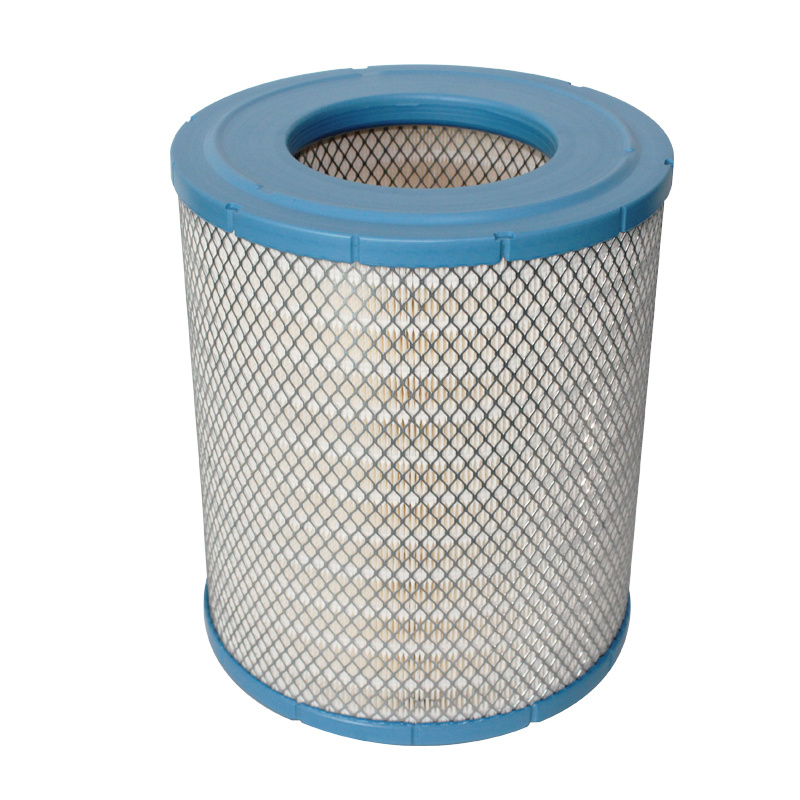Selecting the Right MERV Rating for Your Air Conditioner’s Air Filter: A Comprehensive Guide
Jul 28,2025
Selecting the Right MERV Rating for Your Air Conditioner’s Air Filter Table of Contents 1. Understanding MERV Ratings and Their Importance 2. What is MERV? 3. Understanding MERV Ratings: A Breakdown 4. MERV Ratings Scale Explained 5. Choosing the Right MERV Rating for Your Air Conditioner 6. Impact of MERV Ratings on Indoor Air Quality 7. MERV Ratings and Energy Efficiency 8. FAQs About MERV Ratin

Selecting the Right MERV Rating for Your Air Conditioner’s Air Filter
Table of Contents
1. Understanding MERV Ratings and Their Importance
2. What is MERV?
3. Understanding MERV Ratings: A Breakdown
4. MERV Ratings Scale Explained
5. Choosing the Right MERV Rating for Your Air Conditioner
6. Impact of MERV Ratings on Indoor Air Quality
7. MERV Ratings and Energy Efficiency
8. FAQs About MERV Ratings and Air Filters
9. Conclusion: Making an Informed Choice
Understanding MERV Ratings and Their Importance
In today's world, maintaining **good indoor air quality** is essential for health and well-being. One crucial factor that contributes to this is the **MERV rating** of your air filter. Selecting the right MERV rating for your air conditioner's filter can significantly impact the air quality in your home, your HVAC system's efficiency, and the overall comfort of your indoor environment.
This guide will delve into the intricacies of MERV ratings, helping you make an informed decision when choosing an air filter for your air conditioning system.
What is MERV?
MERV, or **Minimum Efficiency Reporting Value**, is a standardized measure that rates the ability of air filters to capture airborne particles. Established by the **American Society of Heating, Refrigerating, and Air-Conditioning Engineers (ASHRAE)**, the MERV rating system ranges from 1 to 20. The higher the MERV rating, the more efficient the filter is at trapping a variety of particle sizes.
MERV ratings help consumers understand how well a filter will perform in real-world scenarios. For instance, while a MERV 1 filter might stop larger particles, a MERV 13 filter is designed to capture smaller particles, including pollen, pet dander, and even some bacteria.
Understanding MERV Ratings: A Breakdown
To comprehend MERV ratings better, we should look at how they correlate with different particle sizes:
- **MERV 1-4:** These filters are primarily used in residential applications and offer basic filtration, capturing larger particles like dust and pollen.
- **MERV 5-8:** Filters in this range can capture pet dander, mold spores, and finer dust particles. They are suitable for homes with pets or individuals with allergies.
- **MERV 9-12:** These are often used in superior home air conditioning systems, effectively capturing smaller allergens, including smoke particles and fine dust.
- **MERV 13-16:** High-efficiency filters that can trap bacteria and viruses, making them ideal for allergy sufferers and those concerned with indoor air quality.
- **MERV 17-20:** Typically used in specialized environments like hospitals and cleanrooms, these filters capture very small particles, including viruses and certain bio-aerosols.
Understanding where your needs fall within this spectrum is crucial in selecting the right filter for your specific requirements.
MERV Ratings Scale Explained
The MERV scale, as a tool, provides insights into how effectively filters capture particles of various sizes. Here’s a more detailed look at what each category captures:
- **MERV 1-4 (Basic Filters):** Effective for larger particles (greater than 10 microns), such as lint and dust.
- **MERV 5-8 (Mid-Range Filters):** Effective for particles between 3-10 microns, including mold spores and hair.
- **MERV 9-12 (Higher Performance Filters):** Effective for particles between 1-3 microns, including lead dust, and some bacteria.
- **MERV 13-16 (High-Efficiency Filters):** Effective for particles less than 1 micron, capable of capturing smoke particles and allergens.
- **MERV 17-20 (Specialty Filters):** Suitable for specialized applications, capturing the finest particles, down to 0.3 microns.
Choosing a filter solely based on the MERV rating may not be enough. It’s essential to balance filtration efficiency with airflow requirements to ensure your air conditioning unit operates efficiently.
Choosing the Right MERV Rating for Your Air Conditioner
When selecting the right MERV rating for your air conditioner's filter, consider the following factors:
1. **Home Environment:** If you have pets or allergies, opt for a filter with a MERV rating of 9 or higher. For typical family households, MERV ratings of 8-12 are generally sufficient.
2. **HVAC System Compatibility:** Ensure your HVAC system can handle higher MERV ratings without compromising airflow. Consult your system's manual or a professional technician to determine the optimal MERV rating.
3. **Local Air Quality:** If you live in an area with high pollution or allergens, selecting a higher MERV filter can enhance air quality. However, be mindful of the potential cost of increased energy consumption.
4. **Filter Replacement Frequency:** Higher MERV filters may need to be replaced more frequently, especially in areas with high dust or allergens. Regular maintenance is essential for optimal performance.
5. **Budget Considerations:** Higher-rated filters tend to be more expensive. Balance your budget with your air quality needs and system compatibility to find the right filter without overspending.
By taking these factors into account, you can select a MERV rating that best suits your air conditioning needs, ensuring crisp, clean air while maintaining system efficiency.
Impact of MERV Ratings on Indoor Air Quality
**Indoor air quality** directly impacts health and comfort. A higher MERV rating means the filter can effectively capture smaller airborne particles, including allergens, pollutants, and pathogens.
- **Allergen Reduction:** For individuals with allergies, using a filter with a MERV rating of 11 or above can significantly reduce allergens like pollen, mold spores, and dust mites, leading to fewer allergy symptoms.
- **Health Considerations:** Higher-rated filters can trap bacteria and viruses, reducing the spread of illnesses, especially in households with vulnerable individuals, such as the elderly or immunocompromised.
- **Odor Control:** Enhanced filtration can also help reduce odors in the home caused by pets, cooking, and other sources.
Investing in the right MERV-rated filter can lead to a healthier living environment, contributing to long-term well-being.
MERV Ratings and Energy Efficiency
While higher MERV ratings offer better filtration, they can also impact energy efficiency.
- **Airflow Resistance:** Filters with high MERV ratings may restrict airflow, putting more strain on your HVAC system. This can lead to increased energy consumption and higher utility bills.
- **System Maintenance:** Regular maintenance, including changing filters, is essential to maintain energy efficiency. Clogged filters can hinder airflow, making your system work harder and less efficiently.
- **Cost-Benefit Analysis:** Assess the energy costs associated with different MERV filters. Sometimes, a balance between filtration and airflow can provide optimal air quality without drastically increasing energy bills.
Weigh the benefits of cleaner air against potential energy costs to make the best choice for your home.
FAQs About MERV Ratings and Air Filters
1. What is the ideal MERV rating for my home air conditioning system?
The ideal MERV rating typically ranges from 8 to 12 for most residential systems; however, consult your HVAC manufacturer's recommendations.
2. Can I use a higher MERV-rated filter than my system recommends?
While it's possible, using a filter with a higher MERV rating than recommended might restrict airflow, causing your system to work harder and potentially leading to damage.
3. How often should I change my air filter based on MERV rating?
Change your filter every 1-3 months, depending on the MERV rating, dust levels, and system recommendations. Higher MERV filters may require more frequent changes.
4. Will a higher MERV rating improve indoor air quality?
Yes, higher MERV ratings can significantly improve indoor air quality by capturing smaller particles, allergens, and pollutants.
5. Are there any drawbacks to using a high MERV filter?
The main drawbacks include potential airflow restrictions, increased energy consumption, and the need for more frequent filter replacements.
Conclusion: Making an Informed Choice
Selecting the right MERV rating for your air conditioner's air filter is a critical decision that impacts both air quality and system performance. By understanding the MERV rating system, considering your specific needs, and balancing filtration efficiency with airflow, you can make an informed choice.
Investing in the right air filter not only enhances your home’s comfort but also promotes a healthier indoor environment. With proper maintenance and regular filter changes, you can enjoy cleaner air and a more efficient HVAC system for years to come. Remember, the right filter can make all the difference in your home’s air quality and your family's well-being.
TAG:
PREVIOUS:
Contact Us







